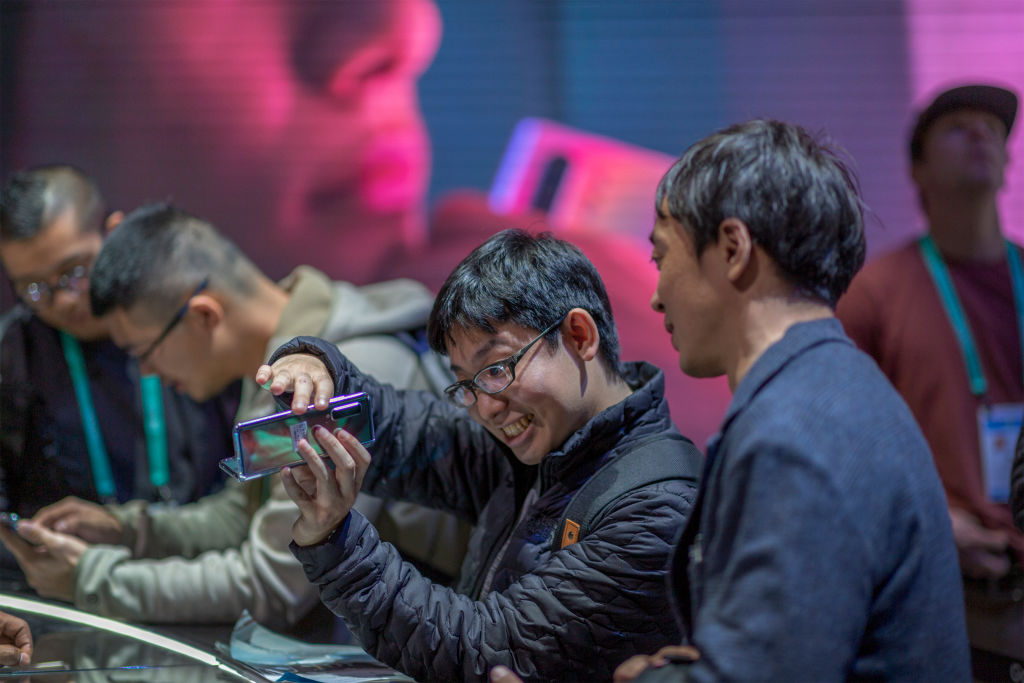Last Halloween, we broke down some “good news” from a Canalys report: the smartphone industry saw one-percent year-over-year growth — not exactly the sort of thing that sparks strong consumer confidence.
In short, 2019 sucked for smartphones, as did the year before. After what was nearly an ascendant decade, sales petered off globally with few exceptions. Honestly, there’s no need to cherrypick this stuff; the numbers this year have been lackluster at best for a majority of companies in a majority of markets.
For just the most recent example, let’s turn to a report from Gartner that dropped late last month. The numbers focus specifically on the third quarter, but they’re pretty indicative of what we’ve been seeing from the industry of late, with a 0.4 percent drop in sales. It’s a fairly consistent story, quarter after quarter for a couple of years now.
There’s been a bit of a perfect storm for declining smartphone sales. And while there have been glimmers of hope, there’s reason to believe the market may never return to the sustained growth it saw a few years ago. Many of the factors come courtesy of a maturing market. For years, there were seemingly endless new markets to expand into, particularly as growth began to accelerate outside of North America and Europe.
After transitioning from luxury item to utility, many markets have seemingly hit a kind of saturation point; many or most of the people who wanted a smartphone now have one. Manufacturers, meanwhile, have painted themselves into a bit of a corner, courtesy of yearly updates that made all flagships and many mid-tier devices quite good, thus prolonging the upgrade cycle for many consumers whose purchasing habits are no longer solely driven by carrier contracts.
The drive to outdo competitors has also driven the price of many premium flagships in excess of $1,000. The notion of spending four digits on a devices was mostly unheard of a few years ago, but the cost of things like OLED panels has shifted expectations markedly. True differentiating features, too, have become more difficult to come by. Manufacturers have long been battling it out on the imaging side, but increasingly those updates are becoming more dependent on software/AI/ML, rather that profound changes to product hardware.
A number of companies have been working to counteract rising prices by offering more affordable option — a sign that the era of smartphones as premium luxury purchases may be coming to a close. Certainly on a local level, places like China (still the reigning smartphone market) has bit hit by slowed economic growth, which in turn, has thrown a major wrench in sales figures.
Lower price options from companies like Apple and Google have slowed the hemorrhaging to various degrees. Samsung, which has long been a proponent of the more is more approach to devices, has had the most success on this front, flooding the European market (among others) with its mid-tier A-Series. Huawei, too, has bucked the trend in recent quarters, as some markets have begun to reopen to the company amid trade war tensions, while it has gotten a patriotic purchasing bump in its own native China.
Long term, I don’t know that we’ll ever see a full return to those earlier days of smartphone growth. But new technologies do present some reason for hope, and 5G is at the top of the list. The first handsets arrived in earnest this year but were mostly too expensive and lacked robust international network support. Qualcomm’s introduction of the Snapdragon 765 with integrated 5G alongside the more premium 865 is a clear indicator that the chipmaker and manufacturers are attempting to get out ahead of things by making less expensive 5G devices available as coverage rolls out internationally.
It should be noted, too, that 5G’s arrival may have actually slowed sales in this past year, as some potential purchasers were simply holding out for both new handsets and more coverage. Here in the States, AT&T is promising nationwide coverage by mid-year. Verizon has previously said it would be in 30 cities by year’s end (that number stands at 18 as of early December), while T-Mobile just launched its own take on the technology (Verizon subsidiary Verizon Media owns TechCrunch).
Carriers have done a lot to muddy the waters, both intentionally through deceptive marketing (I’m mostly looking at you, AT&T, you know what you did) and unintentionally due to a wide variety of different approaches to a technology that all goes by the same broad banner. Some 5Gs are faster than others and some don’t do a great job of covering you on the rare occasion that you’re, say, indoors (Verizon, that’s you, this time). Timelines, too, have been spotty over the last half decade companies have been promising the technology.
That said, 2020 does appear to be the year when those long-awaited 5G sales start to get the numbers back into the black. But even with all the hype that’s been building in the industry over the course of the last several years. As far as when that number will hit critical mass? Not even Verizon’s CEO thinks it will be a majority of U.S. consumers until 2024. That would mean a slower burn than many manufacturers are hoping, but decreased prices for handsets could juice those numbers a touch.
Even with 5G on the way, however, it seems plausible that we have, in fact, hit peak smartphone. Certainly expectations for foldable have understandably been adjusted over the course of the last year. If 2020 sees a reversal in smartphone fortunes, it will be a gradual one. Smart manufactures ought to adjust their expectations accordingly and look to what’s next.






























Comment